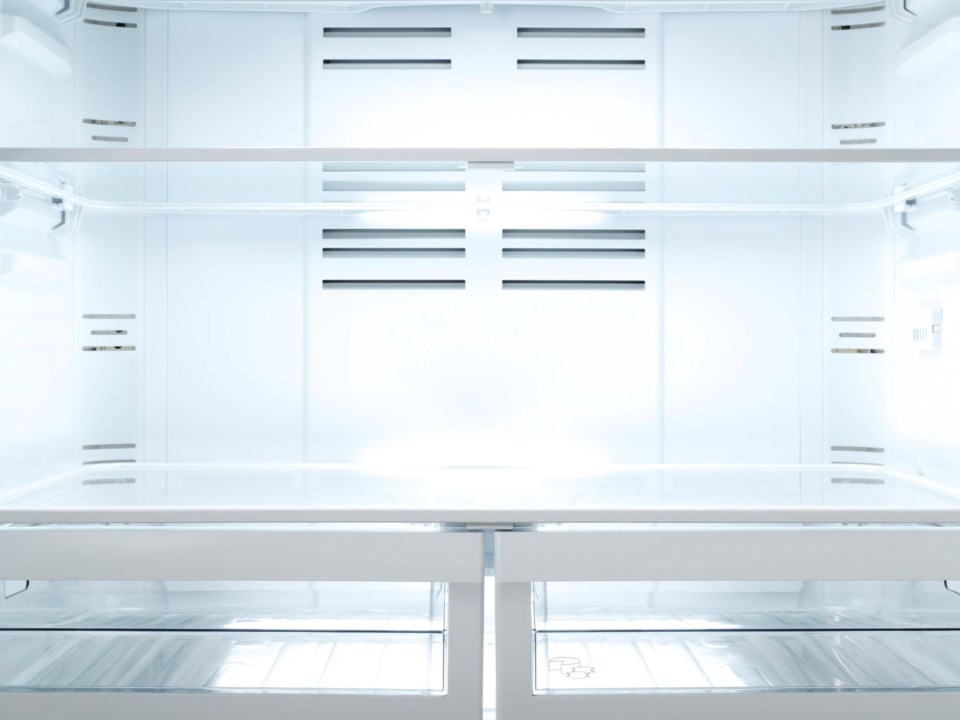A B.C. man won’t be getting the majority of damages he sought at the B.C. Civil Resolution Tribunal for an unsuccessful fridge delivery.
In a March 13 decision, tribunal member Christopher Rivers said Daylen Cossette bought a fridge from Canadian Appliance Source (CAS) in October 2022.
The company had agreed to deliver the appliance but made an error in recording Cossette’s phone number, making a first delivery attempt unsuccessful.
Cossette contacted CAS to remedy the error and another delivery date was set.
“Unfortunately, CAS did not process the correction in time, and delivery was unsuccessful again,” Rivers said. “CAS corrected the phone number and delivered the fridge on Nov. 3.”
Cossette claimed $3,000 in damages for increased food and gas costs, mental health decline, a negative impact on his career and for lost work and annual leave.
CAS said it attempted to deliver the fridge on Oct. 22 and Oct. 29.
“It says Mr. Cossette has not proved his damages. It asks me to dismiss Mr. Cossette’s claims,” Rivers said.
The delivery attempts
CAS says it emailed Cossette prior to attempting delivery to confirm details, including contact information.
“Despite arguing Mr. Cossette should have double-checked information, CAS did not provide a copy of the email,” Rivers said.
Cossette says in preparation for delivery, he sold his old fridge on Oct. 21 and took his refrigerated food to a friend for storage.
CAS said no one was home on the first delivery attempt. Cossette said he was.
CAS said the delivery service tried to call Cossette during the attempted delivery but was unsuccessful. This was when it was discovered the phone number was wrong.
That evening, Cossette said he emailed CAS about the failed delivery. He went to the store on Oct. 24 and a new delivery was scheduled for Oct. 29. A representative said the phone issue had been fixed.
“Undisputedly, the delivery service tried calling Mr. Cossette, but still had the incorrect number,” Rivers said. “As with the previous attempt, Mr. Cossette says he was home.”
Again, Cossette contacted CAS, the number was corrected and the fridge was successfully delivered Nov. 3.
Despite the phone number confusion, Rivers found CAS breached its contract by not delivering the fridge on Oct. 22.
The damages
Cossette claimed $600 for three missed days of work. Rivers said he did not provide any information about his wages or show that he was otherwise scheduled to work on one or all of the delivery dates.
“I find this aspect of his claim unproven and dismiss it,” Rivers ruled.
Cossette claimed the stress of not having a fridge impacted his mental and physical health, requiring him to take leave for three consecutive days after the first failed delivery.
He claimed $400 in damages for being forced to stay home instead of adding those days to other vacation time, during which he said he could have travelled.
However, said Rivers, Cossette’s own evidence showed his supervisor approved his Oct. 24 leave on Sept. 23. That, said Rivers, proves that time off was unrelated to the Oct. 22 delivery.
“For Oct. 25 and 26, Mr. Cossette provided no medical evidence to support his assertion he needed to take that time off to address his mental health,” Rivers said. “So, I find this aspect of his claim unproven and dismiss it.”
Cossette also claimed $500 for a negative impact on his career but did not explain how he determined this amount. Further, the tribunal said, Cossette claimed $800 for mental health decline, depression, weight loss, and inconvenience.
“His evidence is his own statement that he needed to eat ‘junk food’ and, as a result, felt sick, and could not work out,” Rivers said. “I find this evidence is vague, unconvincing, and insufficient to support his claim. So, I find these aspects of his claim unproven and dismiss them.”
Finally, Cossette claimed $700 for increased food and gas costs as a result of being unable to store food in a fridge.
“While he provided no documentary evidence, like receipts, to establish any increased costs, I accept that he would need to pay something more than if he were able to grocery shop normally.”
The tribunal awarded Cossette $100 for additional food and gas costs over the period he was without a fridge.


